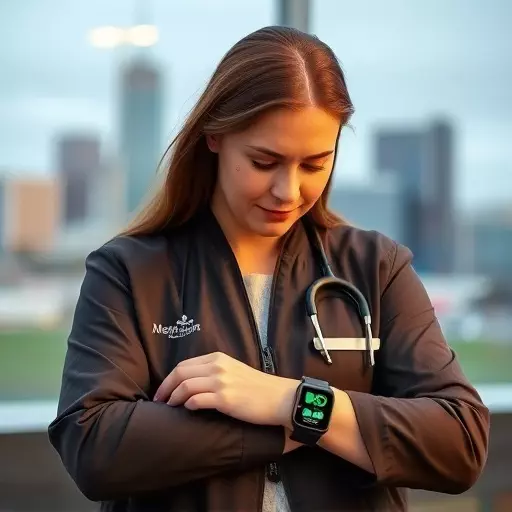Integrative Medicine clinics in Dayton are revolutionizing healthcare with personalized wellness approaches that focus on gut-brain axis health. They use advanced functional diagnostics to identify environmental toxin exposures affecting communication between the digestive system and central nervous system. Wearable health trackers continuously monitor vital signs and activity levels, enabling tailored interventions. Assessing environmental toxin exposure is a key component in integrative diagnostics, with healthcare professionals recognizing unseen substances' impact on overall health. These tools, combined with patient histories, facilitate holistic understanding and personalized treatments to optimize the gut-brain axis.
“Personalized healthcare is transforming the way we approach gut-brain axis health, and at the forefront of this revolution is Integrative Medicine in Dayton. This article explores innovative strategies to unlock personalized protocols tailored to individual needs. We delve into the significance of assessing environmental toxin exposure as a critical component of integrative diagnostics, offering insights into identifying and mitigating potential risks. Furthermore, we discuss how wearable health trackers are revolutionizing personalized care, enabling proactive management of gut-brain wellness.”
- Integrative Medicine in Dayton: Unlocking Personalized Gut-Brain Health Protocols
- Assessing Environmental Toxin Exposure: A Key Component of Integrative Diagnostics
- Wearable Health Trackers: Revolutionizing Personalized Care for Gut-Brain Axis Wellness
Integrative Medicine in Dayton: Unlocking Personalized Gut-Brain Health Protocols

In the heart of Dayton, a growing trend is reshaping healthcare with Integrative Medicine practices that offer unique, personalized approaches to wellness. These forward-thinking clinics are unlocking new ways to understand and optimize gut-brain axis health, a complex interplay between the digestive system and the central nervous system. By integrating functional diagnostics, patients in Dayton now have access to comprehensive assessments that go beyond traditional medicine.
One key aspect of this approach is assessing environmental toxin exposure using integrative diagnostics. This involves analyzing various biological markers through advanced testing methods to identify potential toxins or imbalances affecting gut-brain communication. Additionally, the integration of wearable health trackers plays a significant role in personalized care. These devices provide continuous data on vital signs and activity levels, allowing healthcare providers to tailor interventions to individual needs.
Assessing Environmental Toxin Exposure: A Key Component of Integrative Diagnostics

Assessing Environmental Toxin Exposure plays a pivotal role in Integrative Diagnostics, offering valuable insights into potential gut-brain axis disruptions caused by toxins present in our environment. In the realm of integrative medicine in Dayton, healthcare practitioners increasingly recognize the impact of these unseen substances on overall health. By utilizing advanced methods, such as assessing biomarker levels and analyzing exposure history, practitioners can uncover hidden sources of toxicity.
Wearable health trackers have emerged as powerful tools in personalized care, enabling continuous monitoring of vital signs and potential environmental toxin exposure. These devices, combined with detailed patient histories, provide a holistic approach to understanding an individual’s unique interaction with their surroundings. This comprehensive assessment is essential for tailoring protocols aimed at optimizing the gut-brain axis, ensuring that treatments are not just symptomatic but address the root causes of health disparities.
Wearable Health Trackers: Revolutionizing Personalized Care for Gut-Brain Axis Wellness

In the realm of integrative medicine in Dayton, functional diagnostics are increasingly playing a pivotal role in understanding and optimizing gut-brain axis health. One innovative tool that’s revolutionizing personalized care is the use of wearable health trackers. These devices go beyond traditional metrics to assess various aspects of wellness, including environmental toxin exposure—a crucial factor often overlooked in conventional healthcare. By continuously monitoring physiological data like heart rate variability, sleep patterns, and stress levels, these trackers provide valuable insights into an individual’s overall gut-brain axis functionality.
Integrating this data with assessing environmental toxin exposure through integrative diagnostics enables healthcare providers to tailor treatments more effectively. For instance, understanding the impact of toxins on brain health can lead to specific dietary recommendations or lifestyle adjustments aimed at cleansing and rejuvenating the gut-brain axis. Consequently, wearable health trackers are not just accessories; they’re game-changers in personalized care, fostering a holistic approach that considers both the intricate relationship between the gut and brain and the environmental factors influencing it.
